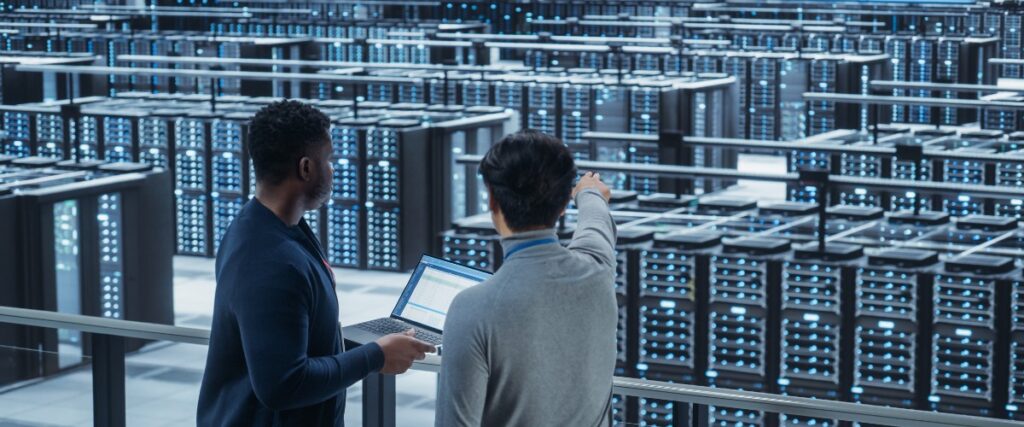Modern times require modern solutions. Gone are the days when businesses did everything with pen, paper, locks, and keys. Nowadays, companies must stay updated, especially with data center standards.
Data centers store and provide access to payments, client information, and customer profiles. Clients want their confidential information to remain private, so businesses must prioritize security. Data center security relies on physical and cyber measures to protect information from malicious attacks and unforeseen circumstances.
5 Data Center Security Standards To Follow
Here are five crucial data center security best practices to consider:
Comply With Government And Industry Standards
Data center security standards are put in place to guide organizations and companies in protecting their users’ sensitive information. These guidelines and protocols safeguard against unauthorized access from within or outside the organization. Companies that fail to comply with cybersecurity standards risk exposing themselves to legal and regulatory consequences.
Companies should strive for compliance with these standards:
- ISO 27001: An internationally recognized standard for information security management system best practices
- PCI DSS: A set of standards that ensure proper processing, storage, and security of credit card information
- HIPAA: Standards focused on handling user data for the medical industry
- GDPR: A set of strict regulations for handling and collecting data from people in the EU
- SSAE 16: Standards for auditing and evaluating controls and processes for protecting data in data centers
Enhance Physical Security Measures
Cyberattacks are just one way to steal information and introduce malicious programs into a data center system. Criminals also try to gain access via physical infiltration. Installing security systems reduces the risk of unauthorized access and makes catching would-be attackers easier.
Adding CCTV cameras inside and outside the premises is a great crime deterrent. Hiring trained security professionals and positioning them in strategic locations like entrances and exits can supplement safety measures.
Other methods include installing biometric identification in sensitive areas and using mantraps to deny physical access to would-be intruders. Mantraps consist of interlocking doors that can trap individuals inside if they fail to provide proper credentials.
Test And Assess Security Plans For Weaknesses
A data center is only as good as its weakest link. Finding weaknesses in security systems should be a priority of any company that deals with sensitive and personal information. Testing safety measures and addressing the problems before threats occur is always wise.
Hiring a third-party security consultant is also a viable option. Cybersecurity professionals can give unbiased reports about current safety measures and recommend improvements in applicable areas.
Have An Emergency Plan In Place
Data centers should also prepare for other events besides physical intrusion and cyberattacks. Natural disasters and power outages also threaten security. Planning for possible contingencies should be part of any company’s strategy.
Having a redundancy plan in place is handy when disaster strikes. Backup servers will ensure data is secure even during power outages. Generators inside the facility should kick in when necessary.
Having a recovery plan is also a convenient way to ensure that lost client data is restored.
Limit Access To Authorized Personnel Only
These security measures are futile if individuals can freely go in and out of secure facilities. Data centers should maintain a high level of security. Limiting facility access to authorized personnel reduces the risk of intruders sneaking in and accessing confidential information.
Authorized personnel should undergo continuous training to update them on the newest threats and vulnerabilities. They should also be adequately trained for emergencies like disasters, cyberattacks, and intrusions.
What Makes Data Security Important?
About 39% of system failures caused more than $100,000 in damages in 2019. That figure rose to 60% in 2022. That significant jump only emphasizes the need for improved data center security.
Here are some benefits of prioritizing data security:
- Outstanding brand reputation: People want to deal with businesses that have their best interests at heart. A company with a solid reputation for securing its customers’ data will bring in more business.
- Savings on investigation and repairs: Ransom payments and repair costs can drain a company’s resources. Up-to-date security measures can prevent this.
- Increased customer satisfaction: People dislike having prying eyes on them when accessing their account information. They prefer companies that ensure everything they put into their apps or programs is safe from hackers.
- Better business management: Avoiding security breaches leaves more resources for business development. Companies prioritizing security can invest their money in high-quality employee training.
- Improved business development: Companies that safeguard their data can stay ahead of the competition since they can focus on developing their business instead of repairing their systems.
Data Security As A Company Responsibility
Organizations that host and manage data centers to store vital information must implement high-security measures. These guidelines act as a safeguard to protect users from malicious attacks. Strong safety standards reflect on the organization and show a commitment to serving clients.
